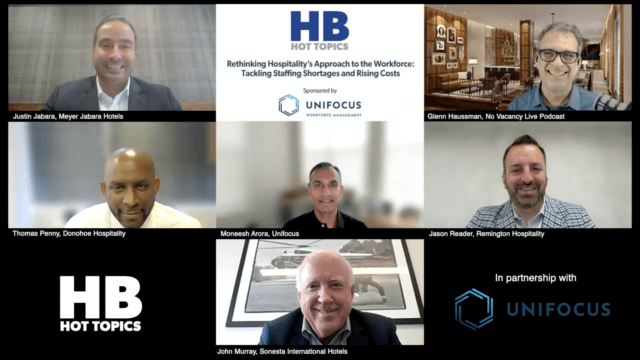NOVI, MI—Chargebacks, where purchases are disputed by the customer and the transaction is reversed, is a part of doing business. The federal Fair Credit Billing Act gives consumers the right to dispute fraudulent charges, but what happens when hotels are on the receiving end of this practice?
Timothy Nafso, co-founder and EVP of Fortis Payments, grew up in the hospitality space and the issue with payments was noticeable. Nafso, along with co-founders Nirav Shah, Jimmy Nafso, and Samir Pimputkar sought to deliver a service that would provide merchants the same service expected from a hotel.
“Fortis recognizes the frustration merchants experience managing chargebacks and the ever-growing risk for fraud within the payment space. We want our merchants to have direct access to us rather than calling 1-800-Good-Luck. We pride ourselves in our capabilities to do more than just move paperwork,” said Nafso. “What started as trying to help our own properties became extremely valuable for hotels across the country. The Fortis Executive Team has over 100 years of combined experience in financial technology and payments, which further contributes to our expertise and understanding of the issues at hand for hoteliers.”
Major hotel brands Wyndham, Hilton, RLH Corporation, Choice Hotels, AccorHotels and independently owned and operated hotels, including bed and breakfasts, are among the company’s clients.
Fortis Payments’ chargeback mitigation team consists of a team of risk management experts that help merchants prevent future chargebacks in addition to managing incoming disputes by:
- Ensuring that the card brand’s best practices are implemented by hoteliers to reduce risk
- Providing chargeback management training
- Executing root-cause analyses and improvement plans
According to Nafso, some challenges that hotelier’s face, resulting in chargeback losses, are understanding EMV (Europay, MasterCard, Visa) and when it’s not OK to process a transaction manually instead of chip-reading the card; incorrectly processing no-shows and advanced payment reservations; and recognizing red flags at the time of reservation and check-in that are conducive to fraud.
Nafso outlined three things hoteliers should know about chargebacks:
Understand the Law: The most important thing to understand about chargebacks is that all cardholders have the right to dispute transactions under the Fair Credit Billing Act, and that banks cannot interfere with this process. Additionally, the issuing bank determines the outcome of the chargeback, not the credit card processor.
Prevent & Protect: The hotelier’s focus should shift to a proactive rather than a reactive approach. In the inevitable event a chargeback is issued, the hotelier will be prepared and can compose a winning rebuttal.
Know the Rules: As long as hoteliers are implementing practices that align with the card brand’s rules, it should not be difficult for a hotelier to protect themselves; ultimately resulting in winning all invalid disputes.
Hoteliers can also learn more through Fortis’ training program, which breaks down the methods to take to secure a positive outcome. “We’ve found that having chargeback training—once our merchants are boarded—allows the business to take a proactive approach instead of a reactive approach. Additionally, we have an extensive library of resources that we provide our merchants, at no cost, to help with their success,” he said. “Once we determine areas of risk, we conduct a training with the hotel’s management team and implement an improvement plan. Our goal is that our hoteliers have long-term success; therefore, we make sure that we follow up quarterly to reassess chargeback activity.”




